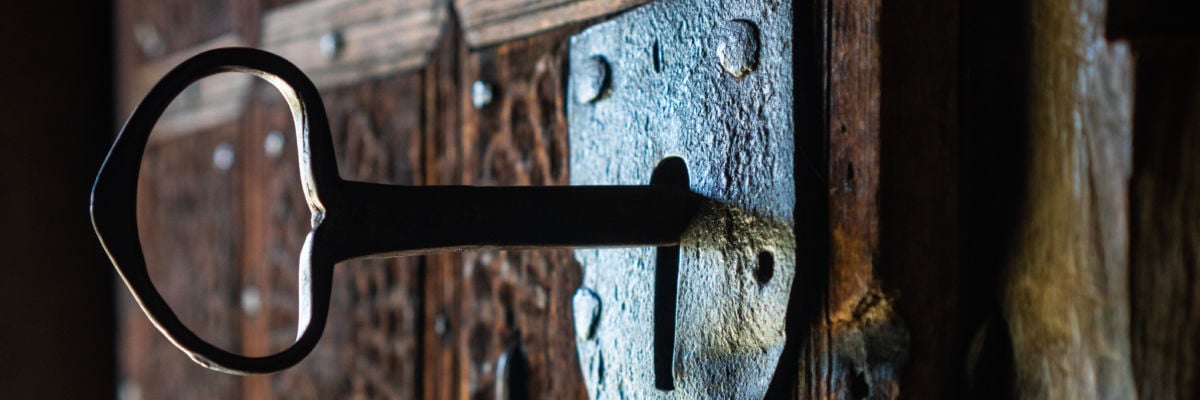
Early in 2020, the coronavirus spurred bishops throughout the United States and most of the world to shut down public Masses, with some dioceses locking churches and even suppressing weddings, baptisms, and confessions. Now, over a year later, the Church has dialed back the most drastic of those actions, with churches open again and the sacraments back in force. But one consequence of COVID-19 remains with us: in almost all the dioceses of the United States, the faithful are still dispensed from their obligation to attend Mass.
Lest we forget after over a year of episcopal dispensation, it’s worth laying out why Catholics (at least normally) have an obligation to attend Mass in the first place.
Why bother obligating Catholics to worship? Speaking about mortal sin and the failure to attend Sunday Mass, Archbishop Eamon Martin of Dublin once noted that “there are many, many instances of people who don’t practice but who may be of deep faith.” According to Greg Allison, a Protestant professor at Southern Baptist Theological Seminary, the Catholic faithful receive no infused grace from receiving mere “bread and wine”—rather, “God declares ungodly people ‘not guilty’ but ‘righteous instead’ as they believe in Christ as announced in the gospel.” So no human act, including participation in Sunday liturgy, could be necessary for salvation, nor could it be required of the faithful.
So what’s the truth? Is it critical for Catholics to go to Mass or not? Can the Church really demand that we attend . . . and punish us if we don’t?
First and foremost, attendance at the Sacrifice of the Mass is grounded in the words of Christ at the Last Supper: “Do this in memory of me” (Luke 22:19; 1 Cor. 11:24). Starting on Resurrection Sunday with the meal on the road to Emmaus (Luke 24:30-31), the apostles and their successors (bishops and priests) have followed this command from the Lord to gather on Sunday, proclaim Scripture, and break bread.
Christ’s command is the fulfillment of the Old Testament’s worship on the Sabbath and the essential way to keep the Third Commandment. The entire creation account is a movement toward Sunday worship, the place of all grace, where humanity intentionally stops everything for the sake of being with the Creator.
Furthermore, “the celebration of Sunday observes the moral commandment inscribed by nature in the human heart to render to God an outward, visible, public, and regular worship” (CCC 2176). Worship is written into human nature, and it makes us who we are meant to be. It is meant to be celebrated in public—every Sunday.
“The Sunday Eucharist,” the Catechism says to sum it up, “is the foundation and confirmation of all Christian practice. For this reason the faithful are obliged to participate in the Eucharist on days of obligation, unless excused for a serious reason (for example, illness, the care of infants) or dispensed by their own pastor. Those who deliberately fail in this obligation commit a grave sin” (2181).
The Catechism is clear: the Sunday obligation is a duty and a responsibility. Because God gave us free will, we can choose to ignore it—but that choice has serious consequences, which the Church has the right and its own duty to impose (see Matt. 18:18).
It’s not just a matter of “go to Mass or you’ll go to hell.” Failing in our Mass obligation, the Church teaches, deadens our relationship with God. One can choose to reject God—free will again—and God, in his justice as our judge and in his mercy as our Father, will allow it. Our sinful choices—including the choice to shrug off the duty to worship—can be the first step in sowing a life turned inward, away from God. When we die, those choices become permanent and eternal. And eternal separation from God is called hell.
The threat of hell is real, but the obligation to attend Mass is so much more than just a threat. It’s meant to push us to be better than we are. We should desire, yearn, and crave to be there—but more than that, we should want to be obligated to be there.
While this may sound outlandish to modern culture, humanity has always thrived under discipline and obedience to rules instituted for our good. Whether we look at military discipline, solid parenting tactics, or any law that protects citizens and enables society’s flourishing, we see that following obligations issued by rightful authorities leads us to who we are meant to be. The Mass is the intersection of heaven and earth, and the Eucharist does feed our souls, but the obligation is not about convincing us of these things. Christ told us, “Do this.” For those who love him, it should be a joy to obey.
Reinstating the obligation on its own would not fix the general decline in Sunday Mass attendance. But that’s not the point, or at least not the primary one. The obligation is not a strategy to keep numbers up, nor is it just an arbitrary rule from capricious superiors or domineering wannabe father figures. This is about honoring the mandate God gave humanity for our own good.
A good father knows what his children need in order to live a great and holy life—and, when necessary, he makes sure they get it. That’s why God the Father grants us the opportunity to become united with him each week, and why, through his ministers in the Church, he sees to it that we take advantage, even if we sometimes don’t know what’s good for us.
The authority to bind Catholics to weekly Mass attendance, and to loose them from it, rests with the bishops. Some bishops are lifting the dispensations they instituted during COVID, but most have yet to do so. No matter what the future holds, let us all yearn so strongly for communion with our Lord that our obligation to attend Mass comes from inside ourselves, even when, during extraordinary times, it doesn’t come from our shepherds.



